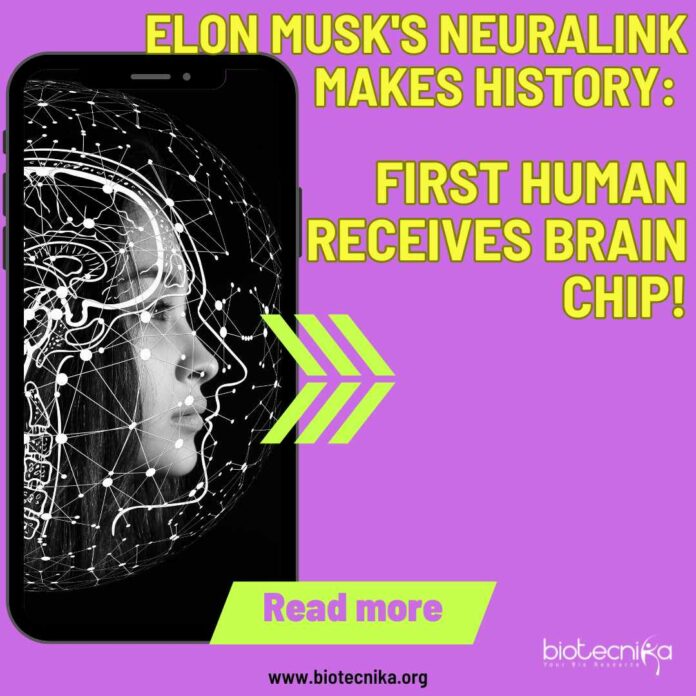Elon Musk’s Neuralink Successfully Implants First Brain Chip in Human Patient
Introduction:
In a groundbreaking development, Elon Musk recently announced that Neuralink, his neurotechnology startup, has successfully implanted a brain chip in its first human patient. This achievement paves the way for direct communication channels between the human brain and computers, with the potential to enhance human capabilities and treat neurological disorders. This article delves into the importance of Neuralink’s groundbreaking achievements and the potential implications for the future.
The Vision of Neuralink:
Neuralink, established by Elon Musk in 2016, seeks to transform the way humans engage with technology. The company aspires to create direct communication channels connecting the brain and computers, fostering a mutually beneficial relationship between humans and artificial intelligence. The ultimate goal is to unlock human potential and provide effective treatments for neurological conditions such as ALS and Parkinson’s.
Successful Implantation and Promising Results:
Elon Musk shared the exciting news that Neuralink had successfully implanted a brain chip in its first human patient. The person is making a successful recovery, and early findings indicate encouraging detection of neuron spikes. This accomplishment represents a notable advancement in closing the divide between humans and machines.
Understanding the Neuralink “Link”:
Neuralink’s technology revolves around the “Link,” an implant approximately the size of five stacked coins, inserted into the human brain through invasive surgery. This implant serves as the crucial communication interface, allowing signals from the brain to be transmitted to external devices and vice versa. The Link’s compact size and innovative design make it a remarkable feat of engineering.
Advancements in Brain-Machine Interface Research:
Although Neuralink generates significant media attention, other researchers and companies are also actively exploring brain-machine interface research. These efforts aim to develop technologies that facilitate direct communication between the human brain and computers or other devices. While Neuralink’s approach involves invasive surgery, other companies, such as Synchron, have developed implant versions that do not require cutting into the skull.
The Role of Synchron:
Synchron, an Australia-based company, has been actively involved in brain-machine interface research. It has successfully implanted its device in a US patient, marking a significant milestone. If collaborations between Neuralink and Synchron materialize, it could result in powerful synergy, pooling resources and expertise to unlock even greater advancements in the field.
The Path Ahead:
Neuralink’s achievement opens up a world of possibilities. As research and development progress, we can expect improvements in the brain-machine interface, making it safer, less invasive, and even more effective. Society stands to benefit from innovations that enhance human capabilities and provide solutions for devastating neurological disorders.
Conclusion:
A major achievement has been reached as Neuralink, led by Elon Musk, successfully inserted its inaugural brain chip into a human recipient. This milestone represents a significant stride in the realm of neurotechnology, pushing us nearer to achieving direct communication links between the brain and computers. Such a breakthrough has the potential to transform multiple facets of human existence. As research progresses, it becomes imperative to give due attention to the ethical dimensions associated with these advancements. With ongoing developments, the envisioned symbiotic connection between humans and artificial intelligence could soon materialize.
Keywords: Elon Musk, Neuralink, brain chip, human patient, direct communication, neurotechnology, neurological disorders, brain-machine interface, Synchron. Please ensure you are subscribed to the Biotecnika Times Newsletter and our YouTube channel to be notified of the latest industry news. Follow us on social media like Twitter, Telegram, Facebook






























